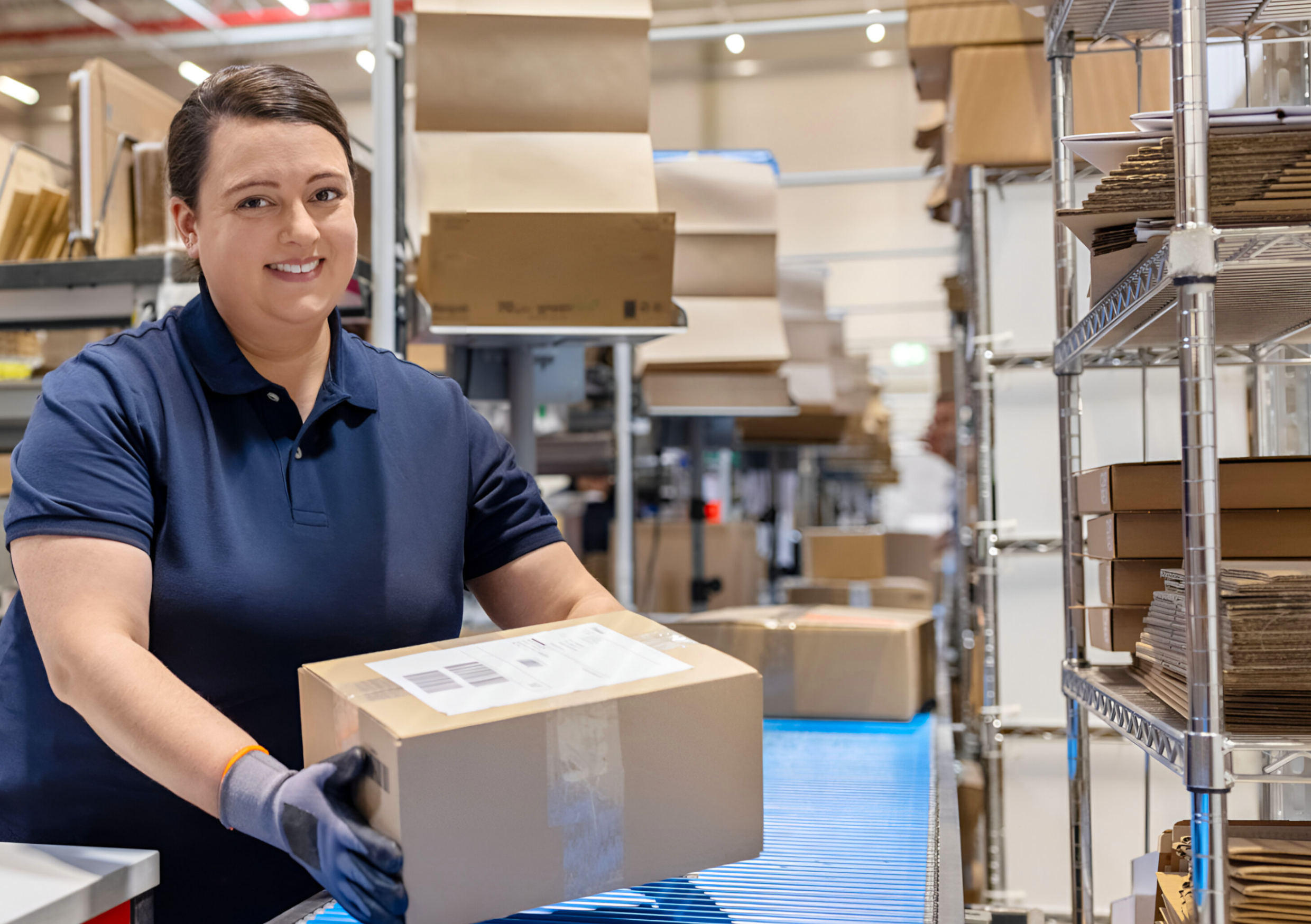The rapid growth of e-commerce has transformed how FMCG companies approach their business operations. Success in online retail demands more than just great products and smart marketing – it requires streamlined logistics that can keep pace with digital commerce demands.
Packaging, labeling, and order fulfillment processes often become bottlenecks that drain resources from strategic initiatives. This is where specialized co-packing services become game-changers, enabling companies to redirect their focus toward brand development and market expansion.
Modern FMCG businesses face unique operational pressures in the digital marketplace. Managing these logistics internally can quickly overwhelm growing companies, creating inefficiencies that impact both customer satisfaction and bottom-line performance.
E-Commerce Logistics Challenges for FMCG Brands
Growing FMCG companies navigating e-commerce face distinct operational hurdles that traditional brick-and-mortar businesses rarely encounter. Resource constraints top the list of concerns – emerging brands typically lack the capital needed for warehouse facilities, specialized packaging equipment, and dedicated logistics staff. This creates a challenging trade-off where every investment in operational infrastructure means less funding available for critical growth activities.

Demand volatility presents another significant challenge in online retail. E-commerce sales patterns can be extremely unpredictable, with promotional events, seasonal trends, or viral marketing moments creating sudden spikes in order volume. Companies unprepared for these fluctuations risk disappointing customers with delayed shipments or compromised product quality.
Multi-channel complexity adds layers of operational difficulty. Amazon has different packaging requirements than Shopify stores, which differ again from traditional retail partnerships. Each platform demands specific labeling standards, packaging formats, and compliance protocols. Navigating these varied requirements while maintaining efficiency becomes increasingly complex as companies expand their digital presence.
Specialized product handling creates additional operational demands. Limited-edition releases, bundle promotions, seasonal packaging, or custom gift sets require flexible processes that many companies struggle to implement cost-effectively with internal resources.
5 Strategic Advantages of Professional Co-Packing
Through extensive industry analysis, we’ve identified five key advantages that make co-packing partnerships particularly valuable for FMCG companies seeking to minimize operational complexity while maximizing growth potential. Here’s what each brings to the table:
Operational focus represents the primary benefit of partnering with packaging specialists. Companies can redirect management attention and financial resources toward core competencies – product innovation, brand strategy, and customer relationship building. This strategic realignment often proves decisive in competitive markets where brand differentiation matters most.
Cost optimization delivers immediate bottom-line impact. Avoiding capital investments in packaging equipment, warehouse space, and specialized personnel creates significant savings. These financial benefits become even more pronounced when considering the hidden costs of managing logistics internally – training expenses, quality control systems, and operational oversight requirements.
Technical expertise provides access to industry best practices and advanced capabilities. Professional packaging companies bring years of specialized knowledge, quality assurance protocols, and problem-solving experience that would take companies years to develop independently. This expertise translates directly into fewer errors, better customer experiences, and more reliable operations.
Scalability solutions enable businesses to grow without operational constraints. Professional partners can rapidly adjust capacity during peak periods, accommodate new product launches, and support geographic expansion without requiring internal restructuring. This flexibility proves invaluable for companies experiencing rapid growth or seasonal demand patterns.
Risk mitigation offers protection against operational disruptions. Established packaging partners maintain comprehensive quality control systems, backup procedures, and industry compliance protocols that minimize the risk of costly mistakes or regulatory issues that could damage brand reputation.
Selecting the Ideal Co-Packing Partnership
While co-packing offers compelling benefits, success hinges entirely on choosing the right partner. Identifying a reliable co-packing provider requires careful evaluation of several critical factors. Here are the key criteria that should guide your decision-making process:
Industry-Specific Experience
Partner selection should prioritize companies with deep FMCG sector knowledge. This specialized experience translates into understanding unique product requirements, regulatory compliance needs, and market-specific challenges. Experienced providers can anticipate potential issues and offer proactive solutions that companies new to outsourcing might not consider.
Flexible Engagement Models
Growing e-commerce companies need partners who accommodate varying order sizes and irregular demand patterns. The best partnerships offer low minimum requirements and scalable service models that align with business growth trajectories rather than imposing rigid operational constraints.
Comprehensive Service Integration
Look for providers offering end-to-end solutions beyond basic packaging. Complete service portfolios should include specialized labeling, promotional assembly, returns processing, and compliance management. Consolidated service delivery simplifies vendor management while often providing better pricing through economies of scale.
Quality Assurance Standards
Verify that potential partners maintain industry-recognized certifications and quality protocols. ISO 9001 certification demonstrates systematic quality management, HACCP compliance ensures food safety standards, and GMP adherence guarantees manufacturing best practices. These certifications provide assurance that products will meet retail partner requirements and regulatory standards.
Communication and Transparency
Effective partnerships require clear communication channels and transparent pricing structures. Reliable partners provide dedicated account management, detailed service agreements, and regular performance reporting. This transparency enables better planning and builds confidence in long-term relationships.
Unlocking Growth Through Strategic Outsourcing
Smart packaging outsourcing can transform how FMCG companies approach e-commerce growth. Rather than getting bogged down in operational complexity, businesses can maintain laser focus on the activities that drive real value – brand building, product development, and customer acquisition.
In today’s fast-paced digital commerce environment, companies that successfully balance operational efficiency with strategic focus often outperform competitors who try to manage everything internally. Professional co-packing partnerships provide the operational foundation that enables sustainable growth and successful market expansion.







